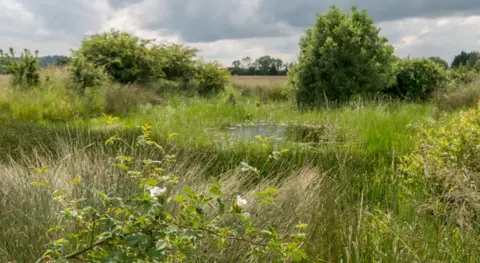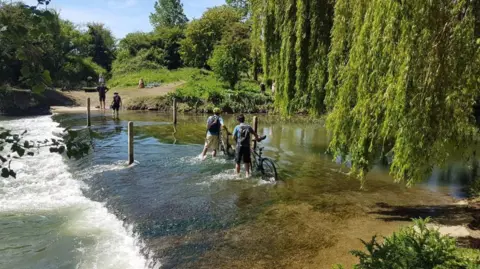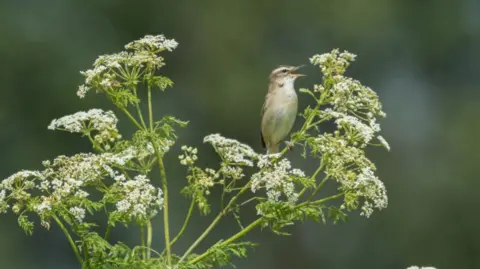Wildlife trust condemns biodiversity planning change
 Andrew Marshall
Andrew MarshallA wildlife trust condemns the government's proposal to weaken biodiversity net gain (BNG) requirements warning that it could "devastate local nature".
The Berkshire, Buckinghamshire & Oxfordshire Wildlife Trust (BBOWT) says the government's requirements for small and medium-sized housing developments will erode community wellbeing across the three counties.
BNG was introduced to ensure that new developments leave nature in a better state than before.
Chief Executive of BBOWT, Estelle Bailey said: "This is an alarming and short-sighted proposal from a Government that just months ago promised to put nature at the heart of development."
Under the government's new plans which is out for consultation, smaller development which make up 70% of all housing projects in England, could be exempt.
The trust said: "This would cause widespread damage to local wildlife, green spaces and community health."
 Berkshire, Buckinghamshire & Oxfordshire Wildlife Trust
Berkshire, Buckinghamshire & Oxfordshire Wildlife TrustMs Bailey explained that in the three counties smaller housing developments often take place near "treasured wild space" which is home to declining species like hedgehogs, bats and bees.
She said: "Removing BNG requirements would not only jeopardise the survival of these habitats, without any obligation to restore or replace them, but it would also see generations to come living in dwellings devoid of nature."
 Andrew Marshall
Andrew MarshallCurrently, small sites are generally developments with nine houses or fewer, although the consultation is also looking at changing the rules for developments of up to 49 houses.
If small sites are removed from BNG, potentially around 80% of demand for BNG units will be wiped out.
Director of External Affairs and Land Recovery at BBOWT, Matthew Stanton said: "It tells communities that nature doesn't matter unless it's big or easy to quantify, which is the opposite of what we need during a nature and climate crisis."
"Stripping BNG from small developments is a clear backward step that we urge the Government to reconsider," he added.
A Defra spokesperson said: "This Government inherited a failed planning system that blocks infrastructure and does little for nature's recovery.
"We are fully committed to Biodiversity Net Gain and making it work even more effectively for developers and for nature.
"That is why our consultation explores easier, quicker, and cheaper routes for developers to deliver gains for nature."
You can follow BBC Berkshire on Facebook, X (Twitter), or Instagram.
